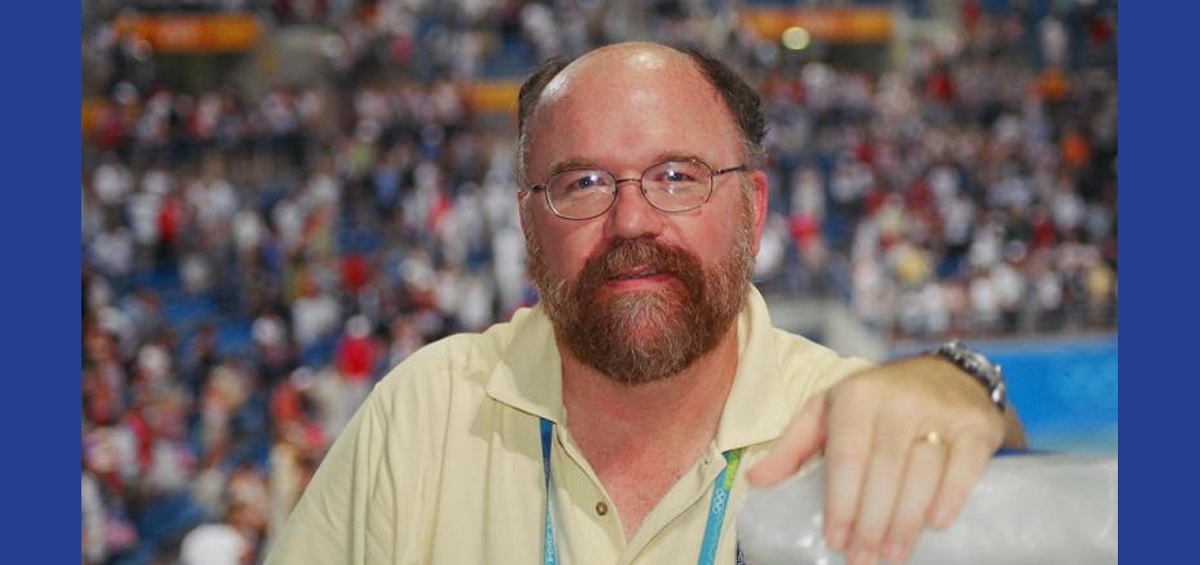Communiqué

WOUB opened the door for Jack Briggs to have his dream sports broadcasting career
< < Back toBriggs was a radio and television major and graduated from Ohio University in 1973
ATHENS, OH – Jack Briggs’ LinkedIn profile lists his current employer as “Briggs World,” a funny play on the fact that he has been retired and doing his own thing since 2017. His employment at “Briggs World” is well deserved because he worked at his previous employer for nearly 40 years. Briggs was the assistant sports director and sports supervisor and producer for Associated Press Broadcasting from 1978 to 2017.
“It was a great gig,” said Briggs. “I got to experience so much including traveling to cover 16 Olympic Games, as well as major events like the British Open, the Super Bowl, the World Series, the NBA Finals, the Final Four, the Daytona 500, the Kentucky Derby and major heavyweight fights.”
It was the kind of career he dreamed about when he was a boy growing up in suburban Cleveland.
“I knew I wanted to get into broadcasting, and I also knew I had a face for radio,” Briggs said with a chuckle. “My uncle was involved in public TV in Ohio, and he suggested that I go to Ohio University for college.”
When Briggs arrived on campus, he got involved at WOUB quickly. He stopped in and told the student sports editor at the time that he wanted to help out.
“And like that, I became the Ohio University wrestling correspondent.”
Since he was a Clevelander, Briggs grew up listening to legendary Cleveland Cavaliers Radio Play-by-Play Announcer Joe Tait. Tait worked at WOUB Public Media and was the voice of the Ohio Bobcats from 1966 – 1968.
“One time I was rummaging through some file cabinets at WOUB, and I found a bunch of Joe’s old notes,” said Briggs. “I looked through them all and held on to them. Those things were the holy grail and taught me so much.”
Briggs worked his way up at WOUB and started doing radio sportscasts. Eventually he got the opportunity to do play-by play on Ohio University basketball games. By his junior year, he became the student sports editor.
“The great thing about WOUB that was truly valuable was it gave you opportunity,” said Briggs. “WOUB gave anyone the chance who wanted to give it a try. It was there to be had.”
Eventually, Briggs became a sports anchor on WOUB TV’s NewsWatch, but he quickly realized that radio was where he belonged.
“I was never comfortable doing TV,” said Briggs. “Over the summers, I would intern at WEWS TV in Cleveland, and I got to see how TV worked. I didn’t like the idea of being so reliant on so many other people to do my job.”
When Briggs graduated in 1973, he accepted a job working a WATH radio in Athens for about a year before moving on to work at St. Louis University as a color analyst for the university’s basketball team. Eventually Briggs came back to Ohio for a sports reporter/anchor position at WSAI radio in Cincinnati. He also started doing freelance work for the Associated Press and others.
“I wanted to be a sports announcer, and this job in Cincinnati gave me the opportunity to cover teams like the Bengals and the Reds. It also introduced me to Skyline Chili, which I am forever grateful for,” Briggs said laughing.
Then in 1975, Briggs got the chance to take his dream job. He moved to Salt Lake City to work as the radio play-by-play announcer for the Utah Stars of the American Basketball Association (ABA).
“I was living the life,” said Briggs. “This is what I wanted to do. Then 11 or 12 games into the regular season, the team folded, and I was out of job.”
Briggs went back home to Cleveland, continued as a freelancer and worked as sports director at both WJW and WERE in Cleveland. He also was the play-by-play announcer for Cleveland State basketball. Then Briggs got a call from the Associated Press Radio Network which changed everything.
“I moved to Washington D.C. and worked there the rest of my career.”
It’s a career that Briggs said he wouldn’t have been prepared for if not for WOUB.
“The education at Ohio University was great, but WOUB was the door that opened up the opportunities.”

